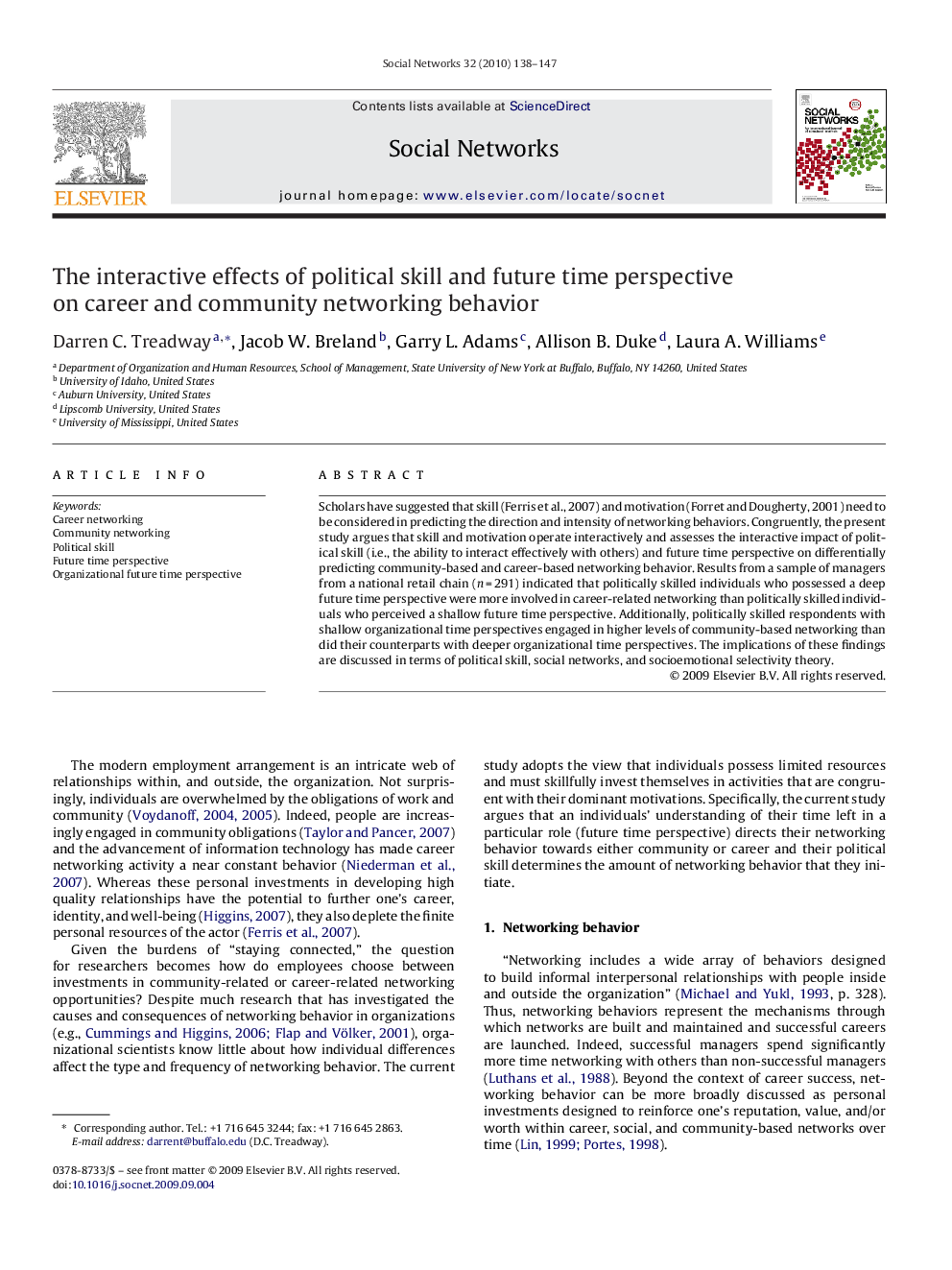| Article ID | Journal | Published Year | Pages | File Type |
|---|---|---|---|---|
| 1129510 | Social Networks | 2010 | 10 Pages |
Scholars have suggested that skill (Ferris et al., 2007) and motivation (Forret and Dougherty, 2001) need to be considered in predicting the direction and intensity of networking behaviors. Congruently, the present study argues that skill and motivation operate interactively and assesses the interactive impact of political skill (i.e., the ability to interact effectively with others) and future time perspective on differentially predicting community-based and career-based networking behavior. Results from a sample of managers from a national retail chain (n = 291) indicated that politically skilled individuals who possessed a deep future time perspective were more involved in career-related networking than politically skilled individuals who perceived a shallow future time perspective. Additionally, politically skilled respondents with shallow organizational time perspectives engaged in higher levels of community-based networking than did their counterparts with deeper organizational time perspectives. The implications of these findings are discussed in terms of political skill, social networks, and socioemotional selectivity theory.
